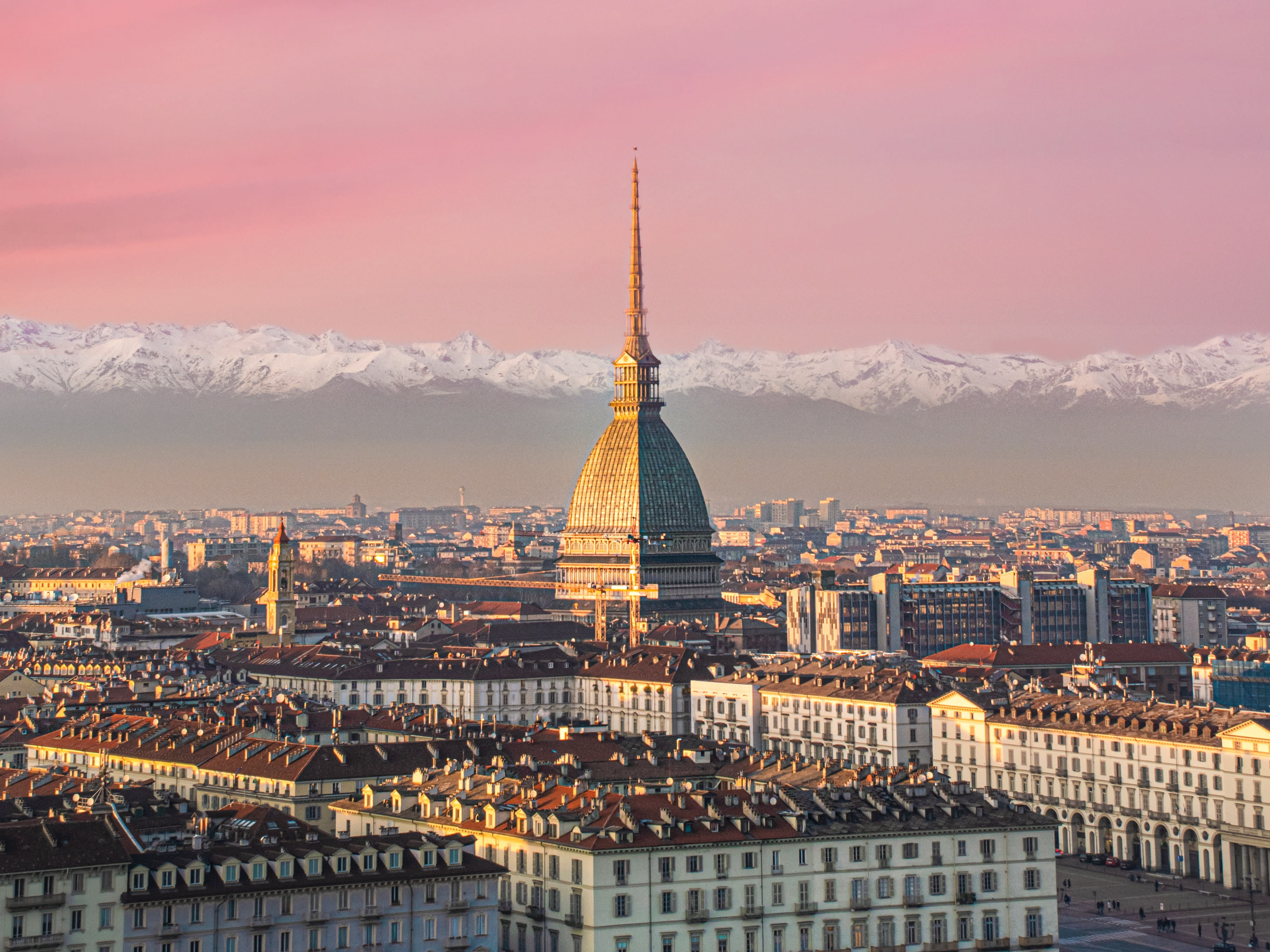How to retire in Italy as a foreigner
Key information about how to retire in Italy, the required documents and where is best to live based on the cost of living.
Sofia
Italy is often chosen as one of the best countries where expats decide to retire because of its Mediterranea weather, food and wine culture. In addition to this, Italy is known for its relaxed lifestyle, quality of life and for being cheaper than most other European countries.
If you’re thinking about retiring to Italy, this guide is for you. We’ll tell you everything you need to know, from the pros and cons of retiring in this beautiful country to the requirements and documents you need to prepare for moving to Italy.
Can expats retire in Italy?

Yes, everyone can retire in Italy. Non-EU citizens need to apply for an Elective Residency Visa, also known as Italy Retirement Visa. EU citizens can freely relocate to Italy. From 2022, the retirement age in Italy is set at 67 for both genders.
In addition to the Elective Residency Visa, if you’re from a Non-EU country, you’ll need to provide proof that you’ve sufficient funds to support yourself. Italy has some specific income requirements that you must meet:
- If you’re alone, your minimum annual income must be €31,000.
- If you’re a couple or married, you’ve to show a minimum annual income of €38,000.
Keep in mind that your income can’t be provided by an employer; the money has to come from other sources, such as
- A pension scheme
- Any form of passive income (i.e., passive partnership in a company)
- Your savings
- Returns on investments
- Income from properties that you own
Keep in mind that you can’t do any type of paid work under the Elective Residency Visa.
The pros and cons of retiring in Italy
Many foreigners choose Italy to retire. But before you make a decision, you should know that like in any other country, there’re pros and cons to living in Italy.
| Pros | Cons |
|---|---|
| Relaxed lifestyle | Bureaucracy is slow |
| Well-developed health care system | The cost of living in big cities can be quite high |
| Italians are friendly and helpful | Not many Italians (especially the elderly) speak English |
| Food is delicious and cheap | Fuel, gas and electricity can be quite high |
| Getting Italian citizenship is not as hard as in other countries | Staying on the elective residency visa is expensive in the long run |
| Renting a house in the city means you’ll be closer to expats | Renting or buying a house in the suburbs means you’ll need to know Italian as you’ll be surrounded by locals |
Things to consider when retiring in Italy
Before making your move, it’s best to know what to expect and what to take into consideration when you retire to Italy.
The best places to retire in Italy

Some of the best regions in Italy where you can relocate and find a low cost of living are Basilicata, Campania, Puglia, Calabria, Marche, Molise, Umbria and Sicily; here, renting an apartment can be as low as €450.
If you don’t mind shelling out a bit more, you can opt for beautiful but slightly expensive regions, such as Lombardia, Liguria, Trentino or Lazio.
Cities like Milan, Rome and Florence are among the best places to live in Italy and where most expats decide to relocate to. In such expensive cities, the rent for an apartment can be as high as €1,300.
Buying v/s renting in Italy
To buy a house in Italy, you’re required to get a mortgage from a local bank. This can take time, especially when you’ve just moved to Italy. Buying a house is also a decision you shouldn’t take lightly.
It’s best to start by renting a house in a region or neighbourhood that you like and experience what’s it really like to live there. Once you’re sure, you can look into the bureaucracy of buying a house.
Do retirees pay taxes in Italy?
Yes, as an Italian resident, you’ll be subject to paying taxes even if you won’t be allowed to work with a retirement visa. Italian law requires that you’ll pay a 7% flat tax on your foreign income, which also covers any wealth tax, if you retire in Sicilia, Calabria, Campania, Basilicata, Abruzzo, Molise or Puglia. If you live in another city, Italian tax rates range from 23% to 43%.
Cost of living in Italy
Italy is known for having a lower cost of living compared to other countries. If you retire in the south of Italy, in addition to the warm weather and amazing landscapes, you can find a cheaper cost of living than in the north.
Despite the big difference between the north and the south of Italy, you can estimate that the average monthly cost of living in Italy is around €1,600.
Italian healthcare system

Registering to the Italian healthcare system is not mandatory if you don’t work in Italy. However, it can be very convenient due to the free access to its services and the high quality of health institutions.
The healthcare system has a constant presence on the World Health Organization (WHO) rankings, being ranked as the second best world healthcare system in 2020.
The Italian healthcare system, also known as Servizio Sanitario Nazionale (SSN), is efficient and mostly free if you contribute to the national healthcare system. You can have access to it after you register as a resident in the city hall where you live.
Since the SSN is managed at a regional level, some costs or the quality of care could differ by region.
Learn Italian
If you’ll find yourself in Italy, you’ll notice that many locals, especially the elderly, are not proficient in or willing to use English. Of course, Italians will always try to help you if you ask for information. However, it would be better if you could learn the local language once you’re there or if you could learn a few simple and essential phrases before moving to Italy.
Bringing pets
Italy is a very pet-friendly country, with dogs allowed in most restaurants, public transport and closed spaces. The basic rules to respect are to carry a leash and a muzzle as you may need them when going on walks or on public transport. If you plan to move to Italy with your furry friend, there are some documents and requirements to meet, such as vaccination proofs and microchips.
Safety
Generally speaking, Italy is considered a safe country to live in. Police are available in all cities if you need any help. Yet, like any other country, you should keep in mind the general safety rules that apply everywhere. To call the police, dial 112, while 118 is the number for the ambulance.
Requirements to retire in Italy for non-EU citizens
Requirements for Non-EU citizens wanting to retire in Italy depend on your current residence: if you’re already in Spain or still living abroad.

Non-EU citizens already living in Italy
You need to have lived in Italy for 20 years as a foreigner to apply for a full pension scheme. This is because you must have accredited 20 years of contributions.
After 10 years of living in Italy with a permanent residence permit, you’ll be allowed to apply for Italian citizenship. If you do this, you can enjoy the benefits of the Italian pension scheme provided by the Italian government.
Non-EU citizens living abroad
- You must be over 18 years old
- You must prove that you’ve enough money to support yourself without working (Individual annual income is €31,160 and €38,000 for couples)
- You can’t do any type of paid work during your time in Italy
- After entering Italy on a Retirement Visa, you’ve to apply for a residence permit ("Permesso di Soggiorno") at the police station, no later than 8 days after your arrival.
- Show proof that you’ve accommodation in Italy
- Buy international health insurance that covers at least €30,000 in all of Europe
- A valid passport and passport photos
- Application for a long-term Visa
- Birth and marriage certificate, if applicable
- Police Check Certificate from the countries you’ve spent the last 5 years in
How much money do you need to retire in Italy?
To retire in Italy, you must show that you’re able to provide for yourself during your time in the country. As of 2022, the minimum amount of money you need to have is
- €31,000 if you’re alone
- €38,000 if you’re a couple
- At least €20,000 for any dependent child coming with you
Requirements to retire in Italy for EU citizens
As an EU-citizen, you’ve got the right to retire freely and live in Italy for more than 3 months if you have a sufficient passive income and a health insurance coverage in Italy.
However, there’re some additional requirements you’ve to meet:
- You’ll be asked to register your residence in Italy after 3 months
- Carry an identity card or passport with you at all times or you can be fined or temporarily detained
- After you legally live in Italy for 5 years in a row, you can apply for permanent residence
Keep in mind that you can lose your right of permanent residence if you live outside Italy for more than 2 years in a row. However, this is not affected by temporary absence (less than 6 months a year) and 1-month absence in 12 consecutive months, for important reasons such as serious illness or work.
How to apply for an elective residence visa
If you still live abroad, the first step is to get in touch with the Italian consulate in your home country and schedule an appointment at the embassy to apply for an elective residence visa.
At the appointment, you’ll be asked to bring with you all the necessary documents and the visa application filled up and signed. You’ll also need to pay the Visa fee of €116.
Essential documents for the elective residence visa in Italy

To be able to get the elective residence visa, there’re some key documents that you need to have:
- A valid passport
- A passport photo
- Filled out long-term visa application form
- Show proof of your accommodation in Italy (hotels and hosts are not accepted)
- Police Check Certificate from your last country of residence
- Bank statements from the last 6 months
- Proof of your monthly income
- Tax returns for the past 2 years
- A cover letter stating your reason for permanently residing in Italy, where you intend to retire, and the names of those coming with you.
Validity of elective residence visa in Italy
The elective residence visa is valid for 1-year and can be renewed after this period if you keep meeting the original requirements over time. After 5 years of continuously living in Italy, you’ll be able to apply for Italian permanent residence. This is a better choice in the long run as you don’t need to meet all the requirements every year.
Keep in mind that to keep your Elective Residence Visa renewable, you’re not allowed to leave Italy for more than six months at a time
Get your residence permit for an Elective Residency Visa
Here’s what you need to do to apply for an Italian residence permit (Permesso di Soggiorno):
- Go to the nearest post office and buy a “yellow kit”.
- Fill up the kit and return it to the post office with the application and all the documents required.
- You’ll be issued with a receipt and an appointment with the “Questura” (police station).
- At your appointment, make sure to bring with you all the necessary documents. Here they’ll take your fingerprints.
- Wait for 4 to 6 weeks and after the police station will call you, you can go and collect your Residence Permit.
Alternatives to Elective Residence Visa in Italy
Do you have Italian ancestry? You could apply for dual citizenship. This could facilitate your process and give you access to the benefits of Italian citizens.
You could also check your eligibility for citizenship by naturalisation, and other ways to get Italian citizenship, such as applying for a golden visa.
Please reach out to content@housinganywhere.com if you have any suggestions or inquiries about the content on this page.
Related articles
In this article
Can expats retire in Italy?
The pros and cons of retiring in Italy
Things to consider when retiring in Italy
Requirements to retire in Italy for non-EU citizens
Requirements to retire in Italy for EU citizens
How to apply for an elective residence visa
Alternatives to Elective Residence Visa in Italy
Moving to Italy?
Book your rental accommodation from verified landlords in Italy even before relocating. No viewings needed.
Search Now

